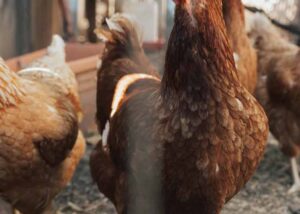Is it permitted to sell cats and dogs?
Quran
Hadith
Islamic Text
In the Hanafi Madhab it is permitted to sell cats and dogs as long as benefit can be derived from them. This is based on the general permission to trade in things that are beneficial.
وَأَحَلَّ اللَّهُ الْبَيْعَ وَحَرَّمَ الرِّبَا
“And Allah has permitted trade and prohibited usury.” [Qur’an, 2:275]
وَنَحْوِ ذَلِكَ مِمَّا وَرَدَ مِنْ النُّصُوصِ فِي هَذَا الْبَابِ عَامًّا مُطْلَقًا، فَمَنْ ادَّعَى التَّخْصِيصَ وَالتَّقْيِيدَ فَعَلَيْهِ الدَّلِيلُ
“The like of such texts (Quran and Hadith) in this area (of law) are general and unrestricted. Whoever claims specification and restriction must bring evidence.” [Abu Bakr al-Kaasaani, Badai al-Sanai]
وأحل الله البيع} وهو عام في كل شي، إلا ما قام دليله}
“(And Allah has permitted trade), this (Ayah) is general for everything (being permitted) unless there is a specific evidence established (to prohibit something). ” [Abu Bakr al-Jassaas, Sharh Mukhtasar al-Tahaawi]
الأصل جواز البيع مطلقا والإباحة
“The original ruling is that trade is permitted absolutely.” [Badr al-Din al-Ayni, al-Binayah]
However, as seen above this general permission can be lifted in the presence of specific evidence regarding something in particular. There are some hadith narrations that seem to prohibit the sale of cats and dogs.
عَنْ أَبِي الزُّبَيْرِ، قَالَ: سَأَلْتُ جَابِرًا، عَنْ ثَمَنِ الْكَلْبِ وَالسِّنَّوْرِ؟ قَالَ: «زَجَرَ النَّبِيُّ صَلَّى اللهُ عَلَيْهِ وَسَلَّمَ عَنْ ذَلِكَ»
“Abu al-Zubayr said, I asked Jabir regarding payment (received) from (the sale of) dogs and cats. He (Jabir ) said, The Prophet ﷺ warned against it.” [Sahih Muslim, 1569 – 42]
حَدَّثَنَا هِشَامُ بْنُ عَمَّارٍ قَالَ: حَدَّثَنَا الْوَلِيدُ بْنُ مُسْلِمٍ قَالَ: أَنْبَأَنَا ابْنُ لَهِيعَةَ، عَنْ أَبِي الزُّبَيْرِ، عَنْ جَابِرٍ، قَالَ: «نَهَى رَسُولُ اللَّهِ صَلَّى اللهُ عَلَيْهِ وَسَلَّمَ عَنْ ثَمَنِ السِّنَّوْرِ»
“Jabir said, The Prophet ﷺ prohibited (receiving) payment for a cat.” [Ibn Majah, 2161 (Da’if)]
The Hadith in Muslim is undoubtedly authentic (Sahih). However, it is not clear regarding prohibition, rather it establishes rebuke and warning. As for the narration in Ibn Majah, it is clear regarding prohibition. However, it is a weak narration due to Ibn Lahee’ah (ابْنُ لَهِيعَةَ), who is known to be a weak narrator.
Weak narrations cannot be used to establish obligations nor prohibitions, although they can be used for Nafl (supererogatory matters).
However, there are other similar Hadith with weak narrations that strengthen the narration in Ibn Majah, see Abu Dawood 3480 and 3897. Some scholars consider these to raise the Hadith to the level of authenticity (Hasan Lighayrihi or Sahih Lighayrihi).
Therefore, an argument can be made that the general permission to trade has been specified regarding the sale of cats and dogs, and thus a prohibition is established. However, there are still other evidences that need to be considered in this discussion.
حَدَّثَنَا عَبَّادُ بْنُ الْعَوَّامِ، عَنِ الْحَسَنِ بْنِ أَبِي جَعْفَرٍ، عَنْ أَبِي الزُّبَيْرِ، عَنْ جَابِرِ بْنِ عَبْدِ اللهِ، قَالَ نَهَى رَسُولُ اللهِ صَلَّى اللهُ عَلَيْهِ وَسَلَّمَ عَنْ ثَمَنِ الْكَلْبِ، إِلَّا الْكَلْبَ الْمُعَلَّمَ
“Jabir bin Abdillah said, The Prophet ﷺ prohibited (receiving) payment for a dog, except for the trained dog.” [Musnad Ahmad, 14411 (Da’if)]
This Hadith is weak in itself due to al-Hasan ibn Ja’far being a weak narrator. However, there are many narrations supporting it:
حَدَّثَنَا أَبُو كُرَيْبٍ قَالَ: أَخْبَرَنَا وَكِيعٌ، عَنْ حَمَّادِ بْنِ سَلَمَةَ، عَنْ أَبِي المُهَزِّمِ، عَنْ أَبِي هُرَيْرَةَ قَالَ: «نَهَى عَنْ ثَمَنِ الكَلْبِ، إِلَّا كَلْبَ الصَّيْدِ»هَذَا حَدِيثٌ لَا يَصِحُّ مِنْ هَذَا الوَجْهِ وَأَبُو المُهَزِّمِ اسْمُهُ يَزِيدُ بْنُ سُفْيَانَ وَتَكَلَّمَ فِيهِ شُعْبَةُ بْنُ الحَجَّاجِ وَضَعَّفَهُ وَقَدْ رُوِيَ عَنْ جَابِرٍ، عَنِ النَّبِيِّ صَلَّى اللَّهُ عَلَيْهِ وَسَلَّمَ نَحْوُ هَذَا وَلَا يَصِحُّ إِسْنَادُهُ أَيْضًا
“From Abu Hurairah he said, He prohibited (receiving) payment for a dog, except for the hunting dog.” [Sunan at-Tirmidhi, 1281 (Da’if)]
Imam al-Tirmidhi explained that this narration is not Sahih due to Abu al-Muhazim. He mentioned that there is a similar narration from Sayidina Jabir which is not Sahih.
Once again we have a number of narrations supporting each other and thus an argument can be made for authenticity (Hasan Lighayrihi or Sahih Lighayrihi). Which is why Imam al-Tirmidhi mentioned elsewhere in his Sunan that some scholars permitted the sale of hunting dogs.
وَقَدْ رَخَّصَ بَعْضُ أَهْلِ العِلْمِ فِي ثَمَنِ كَلْبِ الصَّيْدِ
“And indeed some people of knowledge permitted (receiving) payment for hunting dogs.” [Sunan at-Tirmidhi, 1275]
As well the issue of the above Hadith, found in more familiar books of Hadith, being authentic collectively. We have a narration from the Musnad of Imam Abu Hanifah with a strong chain with similar wording.
عَنِ الْهَيْثَمِ، عَنْ عِكْرِمَةَ، عَنِ ابْنِ عَبَّاسٍ رَضِيَ اللهُ عَنْهُمَا، قَالَ: رَخَّصَ رَسُوْلُ اللهِ صَلَّى اللهُ عَلَيْهِ وَسَلَّمَ فِيْ ثَمَنِ كَلْبِ الصَّيْدِ
“Ibn Abbas said, The Prophet ﷺ permitted (receiving) payment for hunting dogs.” [Musnad Abi Hanifah, 341 (Hasan)]
In Nasb al-Rayah, Imam Jamal al-Deen al-Zayla’i said it is a Jayid chain of narration, as did Ibn Humam in Fath al-Qadeer.
After considering all of the related evidence Hanafi scholars concluded that the general permission to sell anything that is beneficial includes cats and dogs. As for the Hadith narrations indicating prohibition, these are understood to relate to situations in which no benefit can be derived from the animal, for example a rabid dog.
فَصَارَ الْكَلْبُ الْمُنْتَفَعُ بِهِ خَارِجًا سَوَاءٌ اُنْتُفِعَ بِهِ فِي صَيْدٍ أَوْ حِرَاسَةِ مَاشِيَةٍ وَخَرَجَ الْعَقُورُ
“So a dog that can be benefited from is outside (of the prohibition to buy and sell), irrespective of the benefit being in hunting, guarding or livestock. But the rabid dog is not permitted (to trade).” [Ibn Humaam, Fath al-Qadeer]
لَا يَجُوزُ بَيْعُ الْكَلْبِ الْعَقُورِ الَّذِي لَا يَقْبَلُ التَّعْلِيمَ فِي الصَّحِيحِ مِنْ الْمَذْهَبِ
“It is not permitted to sell a dog that bites, and cannot be trained, according to the strongest position of the Madhab.” [Ibn Abideen, Radd al-Muhtaar]
قلت: أرأيت من باع كلب صيد أو كلب ماشية أتجيز (3) بيعه؟ قال: نعم. (الكتاب الأَصْلُ)
I (Imam Muhammad) said, if someone sells a hunting dog or a livestock dog, do you considered the sale to be permitted? He (Imam Abu Hanifah) said yes. (Imam Muhammad Shaybani, Kitab al-Asl).
There is some difference of opinion in the Hanafi Madhab regarding the permissibility of selling an animal before it has been trained. The strongest opinion permits it, because the potential of benefit exists.
وَيَجُوزُ بَيْعُ الْكَلْبِ وَالْفَهْدِ وَالسِّبَاعِ مُعَلَّمًا كَانَ أَوْ غَيْرَ مُعَلَّمٍ لِأَنَّهُ حَيَوَانٌ مُنْتَفَعٌ بِهِ حِرَاسَةً وَاصْطِيَادًا
“And it is permitted to sell dogs, felidae and predatory animals, whether they are trained or not, because they are animals that can be benefited from, in guarding and hunting.” [Imam al-Mowsili, al-Ikhtiyaar]
Cats are included in the general permission to buy and sell animals that are beneficial.
وَيَجُوزُ بَيْعُ الْهِرَّةِ لِأَنَّهَا تَصْطَادُ الْفَأْرَ وَالْهَوَامَّ الْمُؤْذِيَةَ فَهِيَ مُنْتَفَعٌ بِهَا
“And it is permitted to sell cats because they hunt mice and harmful vermin, so they are beneficial.” [Ibn Humaam, Fath al-Qadeer]
And Allah Subhanahu wa Ta’ala knows best.
– Answered by Shaykh Noorud-deen (06.01.2021)






